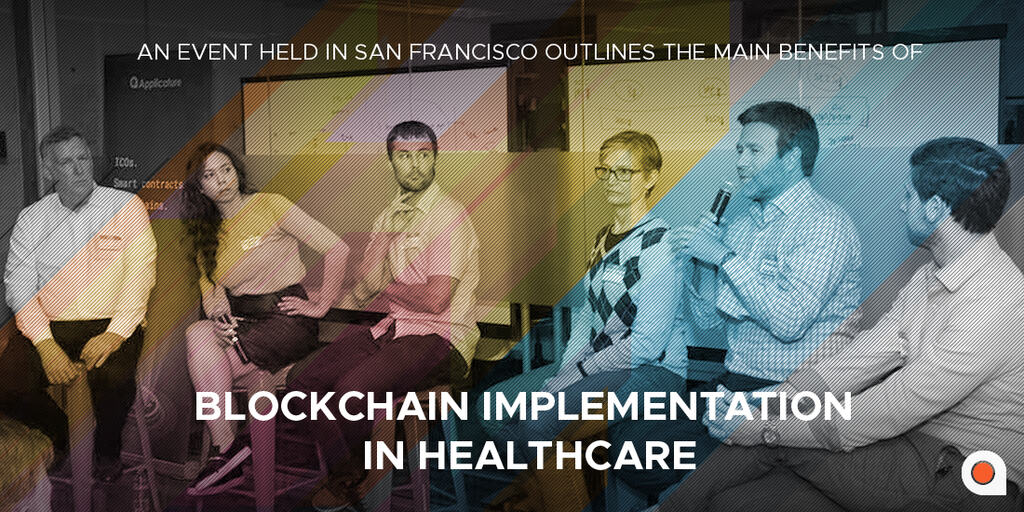
The Blockchain in Healthcare event gathered doctors, practiсe nurses, pharmacists, and other medical workers along with experts to reveal the current blockchain ecosystem in the medical industry and outline the advantages of blockchain implementation.
The event took place at Rocketspace in San Francisco on May 16, 2018. Co-hosted by Applicature, the event welcomed all interested in medicine. By attending the event, people got the chance to find out more about the blockchain ecosystem and interact with such experts as:
- Brian Secemsky (practical internal medicine representative)
- Michael Lapinsky (MIT Media Lab Ph.D.)
- Marquesa Finch (founding partner at P2Health Ventures)
- Lesley Stolz (Ph.D. and SEO at Johnson & Johnson/JLABS)
- Stephan Bauer (IT architect)
- Mark Stoner (business development leader)

The speakers shared their knowledge on relevant issues and outlined the main features of the blockchain ecosystem.
It was emphasized that blockchain technology opens a range of opportunities for medical institutions to store and exchange patient data securely without third-party involvement. Marquesa Finch stated that privacy is one of the major issues nowadays, and blockchain is the solution to provide it. She emphasized that with time and technological development, it will increase and become even better.

Therefore, blockchain provides the following solutions in healthcare:
- safe, transparent record storage
- easy access to medical information
- elimination of data forgery and silos
- quick, secure payment processing

The speakers also stated that blockchain allows easier management, increases the efficiency of patient/doctor communication, provides payment/insurance productivity, and ensures trust between users.
As modern technologies are developing every day, it is crucial to accept new changes for the enhancement of the working processes. One should remember that privacy and security are the key features blockchain provides, as data that has been entered cannot be changed or deleted, thereby providing full transparency and traceability. The latter is especially valued in the healthcare industry, as it is so crucial to provide patients full access to their medical history, which they can share with doctors worldwide to increase their chances for better outcomes.

 Crypto-Investor Day: New Strategies for Security Tokenization
Crypto-Investor Day: New Strategies for Security Tokenization
 The Fundamentals of DeFi
The Fundamentals of DeFi
 Lightning-Fast Bitcoin Transactions
Lightning-Fast Bitcoin Transactions
 Crypto Investor Day Is Approaching
Crypto Investor Day Is Approaching
